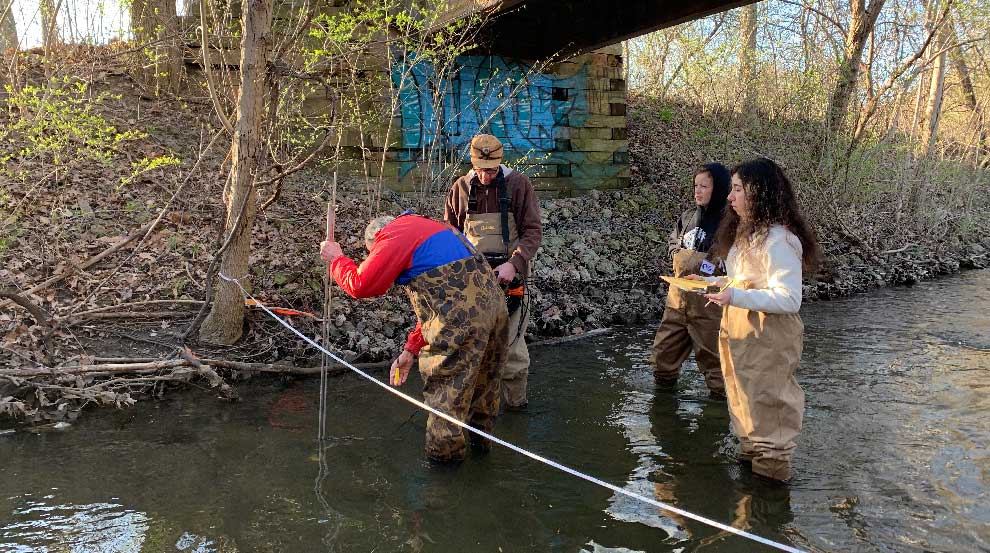April showers bring May flowers and a new season for HRWC’s monitoring programs, including River Roundup and Chemistry and Flow Monitoring. For many volunteers heading out to the field, it may be their first time slipping on a pair of waders, traversing through thick wooded areas, or wading in water. And while every excursion is bound to bring unexpected surprises, such as an in-stream fish sighting or a macroinvertebrate finding, HRWC is working to ensure that field volunteers, especially those heading out for the first time, are safe. ⚠ If you volunteer with us in the field, please note the following:

Be Prepared
Prior to your scheduled field outing, make sure you’re ready to take on whatever the day may bring. Wear proper clothing, such as a hat for sun protection, long pants to avoid insect bites, and closed toe shoes. Take a peek at the weather forecast so you can dress accordingly, apply the appropriate sun protection, or bring the proper clothing to stay comfortable in the field. We also recommend that you pack some snacks and non-alcoholic drinks, insect repellent, and sunscreen.
Know Your Limits
While volunteer-collected data is the foundation for HRWC’s program and projects, no data is worth collecting if you feel unsafe or at-risk of injury. To access some field sites, volunteers must walk on uneven terrain, wade in hip-deep water, and/or traverse through private property. Please communicate with your HRWC program coordinator ahead of time if you have any concerns or require special accommodations. Our staff is more than willing to work with you to ensure your outing, site assignment, and volunteer role fit your needs. If any access or safety issues arise while in the field, such as fast-moving water or wet weather, please use your best judgement or contact the program coordinator when determining whether or not to proceed with your monitoring responsibilities.
Make Us Proud
As a volunteer for HRWC, remember you are serving as a representative of the organization. Please conduct fieldwork in a professional and respectful way that positively reflects the organization in the community. While out in the field, you could run into members of the public who have questions about your fieldwork. Do you best to answer their inquiries and don’t hesitate to talk about your own experience as a volunteer in the program. Obviously, we understand you do not have all the answers, so never hesitate to refer folks to HRWC staff or the website.
To read more about HRWC’s work to provide a more safe and inclusive environment for field volunteers, please visit our Field Safety page.



